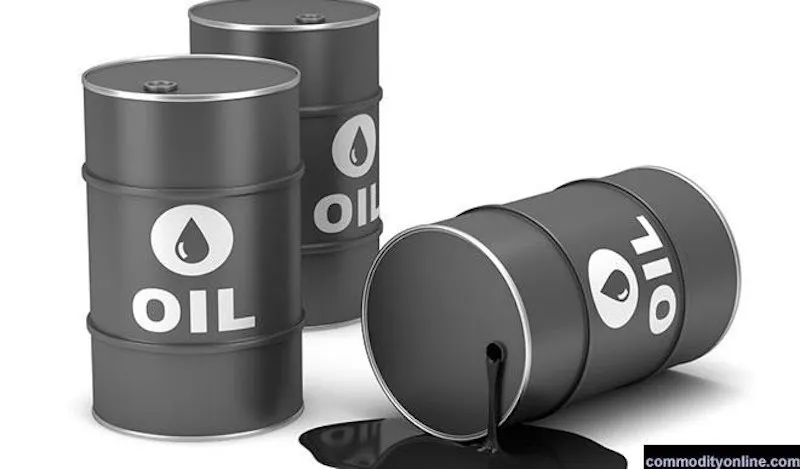Oil Import Decline Reflects Policy Shifts
Nigeria’s oil import expenditure sharply dropped by 35% in the second quarter of 2024, with imports amounting to $2.79 billion, a decrease from $4.31 billion recorded in Q1. This trend, reported by the Central Bank of Nigeria (CBN), is indicative of deeper shifts in the nation’s energy sector policies and economic landscape following recent changes to fuel subsidies.
The reduction in oil import figures coincides with the administration’s initiative to reduce reliance on imported petroleum products and boost local production capacity. According to the CBN report, “Merchandise imports declined in Q2 2024, with a notable drop in petroleum product imports.” Overall, merchandise imports fell by 20.59% to $8.64 billion, compared to $10.88 billion in the first quarter.
Join our WhatsApp ChannelFuel Subsidy Removal and Import Reduction
The removal of fuel subsidies under President Bola Tinubu’s administration is a critical factor in this shift. The subsidy removal, aimed at economic stability and freeing up government resources, has influenced import dynamics. With reduced fuel subsidies, domestic fuel prices have risen, potentially lessening the demand for imported petroleum and encouraging investment in local refining capacity.
In line with the subsidy removal, oil imports accounted for a smaller share of total imports, which CBN data highlighted, stating, “Non-oil imports dominated the country’s total merchandise import structure, making up 67.72% of the total, while oil imports represented the remaining share.” The policy shift is part of the government’s broader strategy to gradually lower dependency on oil imports and increase local production and refining.
READ ALSO: Nigeria’s Palm Oil Imports From Malaysia Soar By 65.3% In 2023
Production Challenges and Security Risks
While reduced oil import costs may offer some economic relief, domestic oil production has faced several challenges. According to the CBN report, crude oil production declined by 4.51% to an average of 1.27 million barrels per day (mbpd) in Q2, down from 1.33 mbpd in Q1. This shortfall brings production below Nigeria’s OPEC quota of 1.58 mbpd, leaving a deficit of 308,000 barrels per day.
The CBN attributes this production decline to ongoing issues like oil theft and pipeline vandalism, particularly in the Niger Delta region. Illegal refining activities and security challenges have plagued the area, impacting output. The report stated, “Production declined due to crude oil theft and pipeline vandalism in the Niger Delta, with significant impacts on output from major streams like Forcados, Bonny, Qua-Iboe, Escravos, and Brass.”
Global Market Relief Amid Domestic Hurdles
Despite domestic production constraints, the global oil market has offered a partial offset with rising oil prices. Nigeria’s Bonny Light crude traded at $86.97 per barrel in Q2, an increase that positively influenced export revenues. CBN data indicates that crude oil and gas exports still make up the majority of Nigeria’s export earnings, accounting for 87.38% of total export receipts in Q2 2024. However, earnings dipped slightly to $12.18 billion from $12.42 billion in Q1.
The rise in oil prices is expected to cushion Nigeria’s economy amid reduced import and production rates, though analysts suggest that sustainable growth may hinge on addressing domestic production issues and fostering a stable environment for local refining initiatives.
Future Outlook: Balancing Imports with Local Refining
Nigeria’s decline in oil imports, coupled with domestic production challenges, underscores the importance of developing local refining capabilities. With ongoing structural adjustments in the oil sector, the government’s emphasis is likely to remain on decreasing import dependence while addressing the obstacles to stable production.
The evolving energy strategy may open pathways for economic resilience if Nigeria can scale up its refining infrastructure and mitigate the challenges in oil-rich regions. However, the impact of subsidy reforms, security concerns, and global oil prices will continue to shape the dynamics of Nigeria’s oil imports and production in the coming quarters.
Emmanuel Ochayi is a journalist. He is a graduate of the University of Lagos, School of first choice and the nations pride. Emmanuel is keen on exploring writing angles in different areas, including Business, climate change, politics, Education, and others.
- Emmanuel Ochayihttps://www.primebusiness.africa/author/ochayi/
- Emmanuel Ochayihttps://www.primebusiness.africa/author/ochayi/
- Emmanuel Ochayihttps://www.primebusiness.africa/author/ochayi/
- Emmanuel Ochayihttps://www.primebusiness.africa/author/ochayi/


















Follow Us